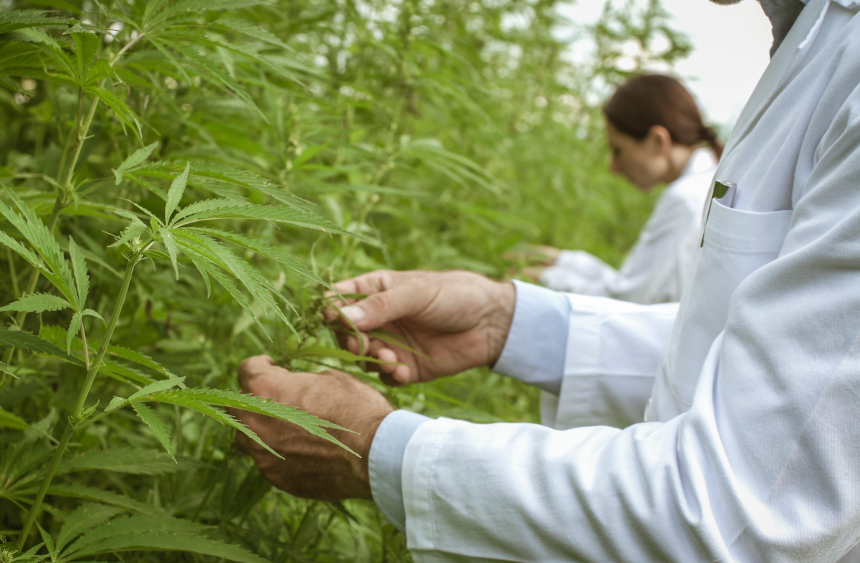The nascent U.S. hemp industry still has much to learn, and should look outward when assessing the research needs required to advance development, according to a new paper from the U.S. Department of Agriculture (USDA).
Because prohibition shut down hemp in the last half of the 20th century, U.S. hemp research was on hold, so there is still much learning to catch up with, according to the paper, “Hemp Research Needs Roadmap,” from the Office of the USDA’s Chief Scientist.
While the U.S. hemp industry stalled, development continued in Europe, China and other parts of the world, the paper observes, urging that international engagement embrace technology transfer, capacity-building and trade.
The paper also calls for the development of a public-private national hemp consortium to advance opportunities and tackle challenges in each of four identified needs areas: breeding and genetics; best practices for production; biobased products manufacturing for end-uses; and transparency and consistency.
Look to Europe
“Just as Europe was a key source of expertise for . . . modernization of U.S. forestry a century ago, so too can it be for industrial hemp today,” the authors write. “Much can also be learned through bilateral and multilateral development collaborations.
“Other countries have developed a successful hemp industry, and the United States has the capabilities and resources to become a viable competitor with other hemp-producing nations after key research challenges of genetics, production, and processing have been addressed and workable solutions identified,” according to the paper.
International engagements also support USDA goals toward increasing the global competitiveness of American agriculture and supporting export market access for its producers and manufacturers, the Roadmap points out.
Technological knowledge developed from global advancements, and discovered from other fields of research must be transferred to all aspects of the hemp industry so products can be produced at scale and delivered to consumers worldwide, the paper urges.
Closing the gap
U.S. research to cover the hemp industry’s needs became apparent upon passage of the 2018 Farm Bill, the federal law that decriminalized industrial hemp. The law paved the way for hemp innovations in breeding and genetics, sustainable management , processing, and biobased manufacturing, and understanding consumer demand for hemp products.
While great potential has been identified in hemp food, feed, fiber, and other biobased industrial products, the hemp industry is young, making it “critical to engage with stakeholders to identify needs from those investing in the hemp arena,” the paper suggests.
The hemp industry recognizes the importance of research that is impactful across the entire supply chain, and is depending on the public sector to leverage land-grant university and USDA agency partnerships to advance research, education, and extension to accelerate successful hemp operations, the authors note.
The Roadmap grew out of a workshop held in late 2022 that identified gaps in knowledge, challenges and opportunities for research to support development of the U.S. hemp industry. The Global Hemp Innovation Center at Oregon State University assisted in development of the Roadmap.

